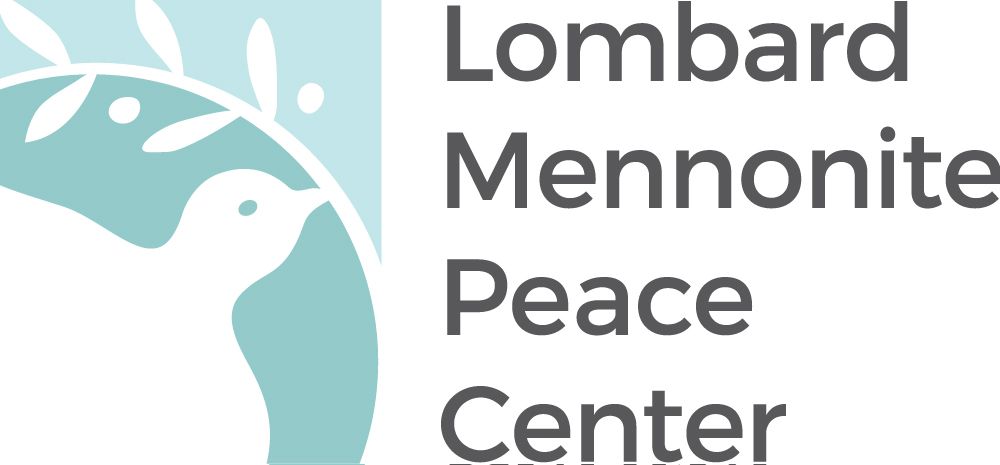Continuum
of Processes
When issues arise in the church, leaders can explore a variety of options for consultation offered by the Lombard Mennonite Peace Center (LMPC). The option eventually pursued depends on certain key variables, including: the level of anxiety being experienced; how widespread the anxiety is within the congregational system; and the level of commitment among leaders to seek genuine healing and reconciliation. The full range of options listed below may help leaders discern the best course for their congregation, given the circumstances they are experiencing.
Available Options
LMPC's Fee Schedule
If a church pursues any of the above options, the following fee schedule would apply:
- $200.00 per hour for on-site time — ($300.00 per hour when two persons are on-site as co-mediators, which is typically the case in sessions in the information-gathering, healing, and problem w solving phases, or when a second staff person is required to manage the Zoom breakout rooms for an online workshop).
- $100.00 per hour for off-site time e.g. time involved in telephone conversations, coaching, special preparation, reviewing information, preparing reports, administrative tasks related to the case, etc.
- $40.00 per hour per mediator for travel, set-up, or on-site downtime.
- $50.00 overnight surcharge per mediator for each night required to be away from home.
- $15.00 per person charge for training manuals.
- $15.00 per person charge for Friendly Style Profile.
- Travel expenses: airfare and rental car, mileage @ the standard IRS rate ($.655 per mile for 2023), airport transportation, parking, tolls, lodging, meals, etc.
The above overview should cover the details sufficiently regarding the various options and how LMPC might be involved. If there were an interest in exploring the full-scale congregational mediation process further, the next step would be for LMPC staff to meet with the official leadership board to outline the steps in the process and answer their questions about it. Such a meeting can also be useful when a church decides to pursue the smaller group mediation option; however, such a meeting may not be necessary, if all members of the leadership board are fully supportive of moving forward with the process.
LMPC's Referral Network
If a church were to invite LMPC to facilitate a mediation process, our staff may or may not be in a position to take on the case, depending on how full our schedule is at the time that an invitation is issued. If we're not able to take on another consultation case directly, there may be people in our broader network to whom we can refer cases for mediation who may be available to serve as lead consultants on a case. Such people would be among those who have been trained by the Lombard Mennonite Peace Center in the model we developed for facilitating a congregational mediation process. If asked to invest time in researching who among such people might be available to take on a mediation case, LMPC would need to keep track of such time for billing purposes.
If referring the case to an individual or team from our network, our staff would still supervise the process and serve as a coach to those persons and, potentially, to assist with some components of the process. Such coaching would primarily take place via the telephone, with the possibility of some limited face-to-face coaching sessions as well. The components of the mediation process for which our staff might be available to assist in the on-site work, if requested by the lead consultants, would be certain educational components and the structured dialogue sessions.
Conclusion
Whenever a church faces a time of conflict, leaders can have a difficult time discerning the best course of action to pursue. However, whatever option is chosen, a key ingredient in helping a church move toward healing and reconciliation is the capacity of leaders to step back from their particular position on the content issues being faced by the church and, instead, focus on their primary role of being stewards of congregational health.
With such a focus, leaders will give primary attention to their own presence and functioning, rather than getting caught up in the anxiety of the situation. As leaders focus on their own presence and functioning, they come to recognize the crucial importance of maintaining nonanxious presence — which includes managing their own reactive tendencies in addition to staying connected with church members, while lifting up a clear vision for reconciliation that is consistent with the broader mission of the church. Such criteria should be the primary focus of leaders, no matter what the outcome on the content issues being faced.
When leaders are able to function in ways consistent with the above guidelines, it can have a calming impact on the whole church system. However, when leaders get caught up in congregational anxieties, it can heighten anxiety throughout the church system. Thus, leaders play a particularly important role in moving a church through times of anxiety, in such a way that allows God 's Spirit to be active in helping Christ's church grow increasingly in healthy and wholeness, into all that God wants it to be.


